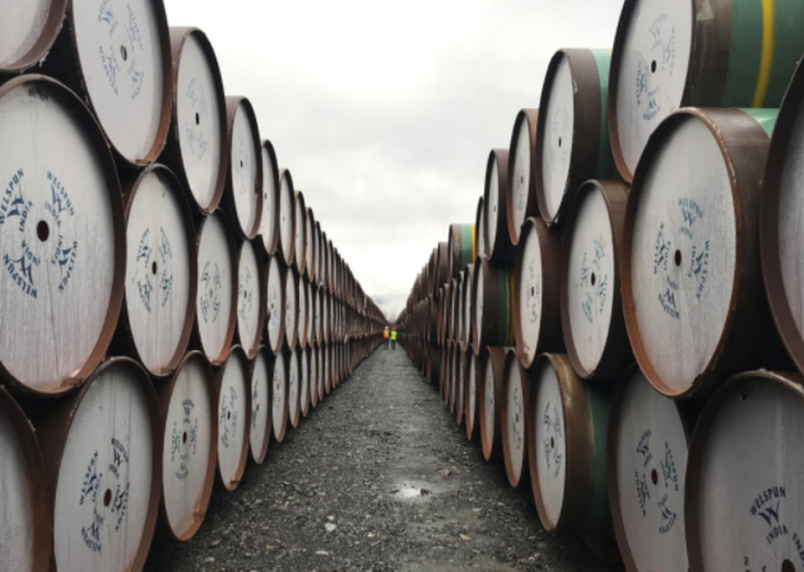For most of the month of February, Canadians were exposed to a series of civil disobedience actions and road blockades that had not been seen in years.
The protests flared up in support of the Wet’suwet’en hereditary chiefs, who are opposed to the construction of the Coastal GasLink liquefied natural gas (LNG) pipeline in British Columbia – a project that is supported by elected band councils along the route.
This month, Research Co. looked at how British Columbians are perceiving the current state of affairs, the performance of the main groups engaged in the dispute, and their feelings towards LNG development in the province.
Seven in 10 British Columbians (70 per cent) have followed news related to the Coastal GasLink pipeline “very closely” or “moderately closely” over the past two months, including 76 per cent of men, 80 per cent of residents aged 55 and over and 77 per cent of those who live in northern B.C.
Across the province, 61 per cent of residents support LNG development in British Columbia, while 25 per cent are opposed. The numbers do not change much when respondents are asked directly about the Coastal GasLink pipeline. Three in five British Columbians (61 per cent) agree with building this project, while 30 per cent disagree.
Two areas of the province – Vancouver Island and Metro Vancouver – have shown resistance to other resource development projects in the past. When it comes to Coastal GasLink, support is high in both regions (67 per cent on Vancouver Island and 59 per cent in Metro Vancouver).
There is also no political divide on this particular project, with majorities of British Columbians who voted for the BC Green Party (53 per cent), the governing BC New Democratic Party (BC NDP) (56 per cent) and the BC Liberals (75 per cent) in the last provincial election agreeing that the Coastal GasLink pipeline should continue.
Respondents to the survey were asked to assess the actions of six specific groups that have been the main protagonists in this quarrel. The highest rating is for the Wet’suwet’en elected band council, with 48 per cent of British Columbians agreeing with what they have chosen to do, followed by the government of British Columbia (44 per cent) and the government of Canada (41 per cent).
The endorsement of the actions of the provincial government is highest among men (47 per cent), British Columbians aged 18 to 34 (51 per cent) and residents of the Fraser Valley (59 per cent). In a fascinating twist, more than half of those who voted for the BC Liberals in 2017 (54 per cent) agree with what the provincial government has done on this file, slightly higher than the feelings of those who cast ballots for the governing BC NDP (48 per cent) and the BC Greens (also 48 per cent).
The public is more nuanced in its assessment of the Wet’suwet’en hereditary chiefs, with 37 per cent of British Columbians agreeing with their actions and 48 per cent disagreeing with them. Dissatisfaction is definitely higher with the people who have participated in protests (agree 38 per cent, disagree 53 per cent) and those who have taken part in road blockades (agree 33 per cent, disagree 58 per cent).
On the issue of civil disobedience, British Columbians aged 35 to 54 and aged 55 and over see little difference between those who have protested the project without disturbing roads and those who have actively blocked them. Among British Columbians aged 18 to 34, there is a change. While 55 per cent of the province’s youngest adults agree with the actions of the protesters, the proportion drops to 46 per cent when assessing those who have blocked roads.
Most British Columbians hold positive feelings about the project. More than two-thirds (70 per cent) believe the Coastal GasLink project will create hundreds of jobs, and a majority (53 per cent) do not feel the provincial government should stop the project.
In addition, half of British Columbians (50 per cent) do not regard the pipeline as a threat to the health and safety of local residents. This finding compares favourably with the results of a similar question Research Co. posed to British Columbians in December 2019 on the TransMountain pipeline expansion. Back then, 45 per cent of residents saw that project as a menace – five points higher than what is observed for Coastal GasLink now.
There are some important revelations in this survey. Any animosity generated against the provincial government in the early stages of the dispute is not evident now, particularly as supporters of the main opposition party are more likely to express satisfaction with Victoria’s actions so far. Also, at a time when seven in 10 British Columbians are following stories related to Coastal GasLink, the public endorses its continuation by a two-to-one margin.
Mario Canseco is president of Research Co.
Results are based on an online study conducted March 9–11, 2020, among 800 adults in British Columbia. The data has been statistically weighted according to Canadian census figures for age, gender and region in Canada. The margin of error, which measures sample variability, is plus or minus 3.5 percentage points, 19 times out of 20.



